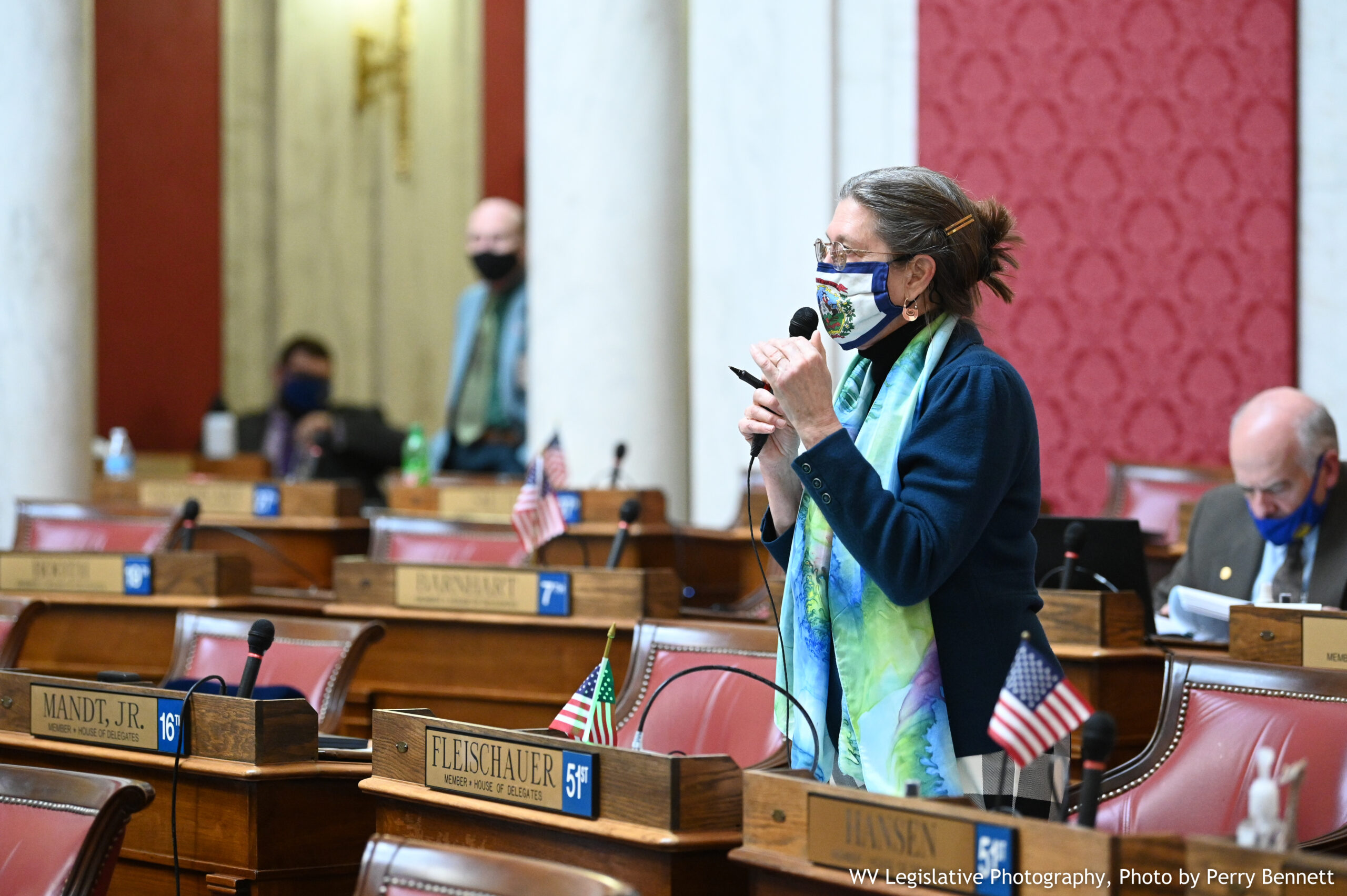MORGANTOWN – The House Health and Human Resources Committee approved the Senate bill to license needle exchange programs. It also approved the bill to extend the welfare applicant drug testing program, adding another four years to the Senate proposal.
SB 334 would require any needle exchange program to be licensed by Office for Health Facility Licensure and Certification (OHFLAC). Programs must set a goal of a one-for-one exchange of needles distributed and returned. It requires a county sheriff to write a letter of recommendation for a program, which can later be withdrawn, giving a sheriff unilateral power to close a program.
It also requires exchange clients to have a valid West Virginia ID.
The House Health version removed the requirement for a sheriff or county commission to authorize a needle exchange program but Delegate Evan Worrell, R-Cabell, successfully amended it back in.
The House version enables qualified harm redcuton programs to be eligible for Medicaid reimbursement.
Caitlin Susman with Milan Puskar Health Right in Morgantown talked about some of benefits of a harm reduction/needle exchange program.
Allowing clients to obtain clean needles, she said, helps curb the spread of HIV and hepatitis. The needle exchange serves as an entry point for Health Right to then offer the various harm reduction services, including treatment, addiction counseling and HIV and hepatitis screenings.
People are 3.5 times more likely to stop injecting if they go to a harm reduction program, she said.
An ID requirement poses a significant barrier to helping clients and hampers the program mission, she said. “We want people to show up and obtain the care.” This is a population already dealing with many challenges and the ID requirement makes them less likely to show up.
When Charleston enacted an ID requirement, she said, participation dropped 50% and the HIV outbreak there exploded. “We need them to get better so our state can get better.”
Health Right doesn’t require West Virginia ID, she said, but there’s a lengthy intake process and they have an internal ID system that allows them to keep track of clients.
Needle exchange programs are concerned about costs, she said. A requirement in the bill to use individually labeled needles will be expensive because they cost far more and so programs will order fewer needles.
When Worrell offered his amendment requiring program approval by the county or local government where the program would be based, committee counsel told the delegates the CDC regards this as a barrier to an effective program. Members adopted it in a divided voice vote.
Members defeated, also in a divided voice vote, an amendment co-sponsored by Delegate Barbara Evans Fleischauer, D-Monongalia. To remove the ID requirement.
The bill heads next to House Judiciary.
TANF bill
The bill to require drug testing for Temporary Assistance for Needy Families (TANF) applicants is SB 387. The pilot program began in 2017 and requires TANF applicants to fill out a drug screening form. Those who fail the screening must get tested and those who test positive must undergo a treatment program to retain their benefits.
It wasn’t mentioned at this meeting but Department of Health and Human Resources Deputy Secretary Jeremiah Samples had told the Senate that the COVID pandemic somewhat disrupted the program so SHHR was requesting a brief extension, through Dec. 31, 2022. House Health amended it to run through Dec. 31, 2026.
Sample did come before the committee. He told members that there have been 131 positive test since 2017. Some of those refused treatment; some started but dropped out’ one person completed treatment. But 95 of the 131 sought treatment independently through Medicaid.
IN 2019, he said, an average of 596 people per month applied for TANF; that fell to 379 per month in 2020. The program currently has 6,059 people enrolled, with 4,534 of those being children.
The program has cost $33,054 to run, so far, he said. Of the 131 positive tests, 61 positivewere for marijuana only.
Delegate Mike Pushkin, D-Kanawha, offered a failed amendment to exclude marijuana from the testing regimen. He said it lingers longer in the system than other drugs, will likely be legal soon, and treating marijuana users will just plug up the system and use beds needed for people on harder drugs.
Pushkin was among those who observed that the meager success of the program suggests it shouldn’t continue. “This is an optics bill. … We’re going to keep on with this failed program to say we drug tested people on welfare.”
It passed in a divided voice vote and heads to the House floor.
Tweet David Beard@dbeardtdp Email dbeard@dominionpost.com




